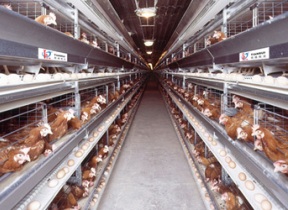Poland calls on delaying cage ban to 2017

The Polish government is the first country to formally ask the EU’s Agricultural Council to delay the ban on battery cages by 5 years to 2017.
At present, the ban regarding the housing of layer hens in cages will be banned in 2012. Poland argues that this is too early, and that it will lead to a shortage of eggs in the EU. As a consequence, eggs will then be imported from countries having lower welfare standards for layers than in the EU.
Poland also argues that only a small percentage of hens are kept in enriched cages in the EU; in Poland alone only 17%.
Intra-EU trade ban
The EU so far has insisted that it will go ahead as planned, even though many in the egg industry believe that some EU states will fail to meet the deadline.
Countries that have moved forward are concerned that if the ban is delayed, egg producers in EU countries who have invested in alternative production systems will face unfair competition from those allowed to continue with battery production.
In the UK, for example, the government has accepted the argument of the egg industry, that an intra-EU trade ban will be put into place if any EU member state allows to delay implementation of the cage directive.
Eggs from caged layers also would need to be stamped differently to distinguish these from alternative systems. Also, welfare groups are strongly opposing the delay and put pressure on governments not to give in on current legislation.












